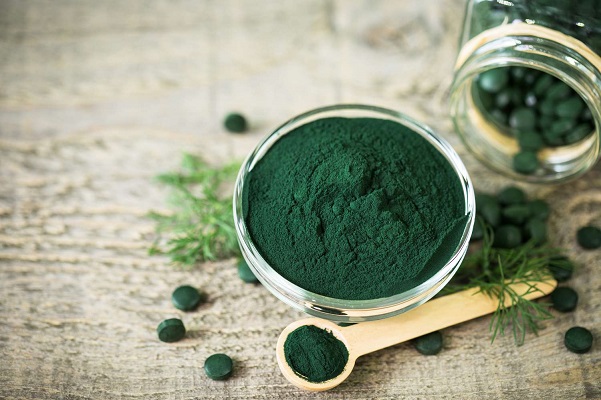On This Page
Overview
There is no denying that consuming fruits and vegetables improves one’s health and immunity in both qualitative and quantitative ways. They add a special blend of vitamins, minerals, antioxidants, and nutrients to your diet. They also aid in the removal of pollutants from the body through detoxification. Beetroot or beets, the lead ingredient in many modern smoothies, is one such superfood.
Beetroots, commonly referred to as beets, are a common root vegetable that are rich in critical vitamins and minerals and are widely used for their therapeutic and cosmetic benefits. Beta Vulgaris is the beetroot’s scientific name; its common names include common beet, garden beet, and table beet.
Synonyms of Beetroot
- Beetroot
- Chard
- European sugar beet
- Red garden beet
- Harvard beet
- Blood turnip
- Mangel
- Beta vulgaris rubra
- Spinach beet
Nutrition Facts of Beetroot
| Calories: | 44 |
| Protein: | 1.7 grams |
| Fat: | 0.2 grams |
| Carbs: | 10 grams |
| Fiber: | 2 grams |
Phytochemical Constituents of Beetroot
- Betalains
- Flavonoids
- Polyphenols
- Saponins
Therapeutic Uses of Beetroot
- Prevent Anemia
Many people might think that beetroot red only prevents anemia. However, beetroot juice contains significant amounts of iron and folic acid.
It is a proven truth that drinking only regular beetroot juice can help women avoid monthly irregularities, anaemia, and the symptoms of menopause by promoting RBC regeneration.
- Improve digestive health
One of the wealthiest sources of the amino acids and dietary fibers needed to aid with dyspepsia is beetroot. It may relieve constipation and aid in regulating bowel movements. Because beet is good for the gut, it makes stools more voluminous and lowers the risk of a number of chronic disorders, Such as IBS, Crohn’s Disease.
- Helpful in brain activity
The blood flow to the brain is improved with the aid of beetroot. It enhances mental processes and concentration. Beetroot’s nitric oxide content aids in preserving the brain’s natural blood flow.
- Aid in Weight Loss
Anyone looking to lose weight can use beetroot in place of regular refined sugar because it has a high level of natural sweetness. Additionally, this vegetable is the finest option for anyone looking to reduce weight due to its high fiber content.
- It supports build healthy bones and teeth
Silica content is high in beetroots. Silica is an essential element needed for strong bones and teeth. Beetroots are also high in magnesium, vitamin C, and folate in addition to silica. Additionally, beets protect against osteoporosis.
Home Remedies of Beetroot
- Relief From An Itchy Scalp
Beetroot should be cut in half and then rubbed on the scalp.
Your scalp will absorb its juice, which will hydrate it from within while removing dead skin cells. For a scalp free of itching and dandruff, leave it on for 15 minutes.
Repeat it once a week to enjoy your hair’s healthy, natural shine.
- Soft and pink lips
One teaspoon of beetroot paste should be combined with one teaspoon each of milk and honey. This lip mask will soothe and moisturize your lips as you make a smooth paste and apply it to them. In 15 minutes, rinse with cold water.
- Glowing Skin
Beetroot (Beta vulgaris) should be cut into thin slices and blended. Juice should be strained into a fresh dish. 2 tablespoons of aloe vera gel and 3 teaspoons of beetroot juice should be placed in a glass jar. Until the mixture becomes a reddish gel, thoroughly combine the ingredients. Put it in the refrigerator.
It can be applied as an overnight mask that you wash off in the morning. Even as a night serum, you can use it to calm your face.
If applied consistently, this can give your face a lovely glow. But before using it as a night serum, kindly conduct a patch test.

Have A Health Issue?
Consult Online
- Dr. Sahil Gupta (B.A.M.S., M.H.A.)
Ayurvedic Allergy Specialist
CEO & Founder of IAFA®
Ayurvedic Aspects of Beetroot
Root vegetables are grounding, relaxing, and vata-soothing foods for the autumn season. Gajar (carrot) and Chukandar (red beetroot) are delicious and are reputed to be warming. Together, they improve digestion and purify the intestines and stomach. Vata and Pitta doshas can be balanced with beetroot juice.
Ayurvedic research suggests that beetroot has a guru characteristic that can improve one’s athletic performance. Additionally, it enhances the body’s Kapha in order to maintain the body’s strength and health. Therefore, regular beetroot eating will contribute to boosting energy levels and improving overall athletic performance.
Daily Dose: Each day, one cup (136 gm) of beets is adequate. If you enjoy beetroot juice, limit your daily intake to 200 ml.
Side Effects of Beetroot
- May Cause Anaphylaxis
Beetroot can occasionally result in anaphylaxis, a severe allergic reaction to an allergen to which the body has developed a hypersensitivity. A lot of beetroot might lead to asthma and urticaria.
- Skin Allergies
We are aware that beet juice is an excellent source of nutrients, including vitamins, minerals, phytonutrients, antioxidants, and polyphenols, however some people may be allergic to these nutrients. Symptoms of beetroot allergy include skin rashes, hives, itching, chills, and sometimes fever.
- Kidney Problems
Beetroot should be avoided by persons who have kidney stones or are at risk for developing them. The cause is that beets contain a lot of oxalate, which in some people may encourage the development of stones.
Conclusion
Most diets benefit greatly from the addition of beetroots. There are numerous ways to eat it without much preparation. We underestimate how flexible beets are. Beetroot is a “superfood” because of its advantages, and many individuals who care about their health recommend it. Only frequent consumption and moderation will provide the nutrition from beetroot and its physiological effects. It’s crucial to remember that beets shouldn’t be consumed in excess. If you experience any beetroot side effects, consult a health professional right away. If you have a beetroot allergy, Consult Dr. Gupta at the IAFA®, who successfully treats these side effects and allergies using an ayurvedic approach.










